It’s All in the Stars(fish): What Your Astrological Sign Says About Your Favorite Marine Life

When you sit down and think about it, astrology and the ocean really aren’t too different. A vast, wide expanse sweeping as far as the eye can see, obscurities of dark, deep, far-away spaces, our wildest dreams and questions often left nebulous. As students, we have a natural yearning to have life’s questions answered and solve the mysteries of its puzzle.
Read moreLeave it to beavers: How a controversial rodent aids in salmon restoration and recovery
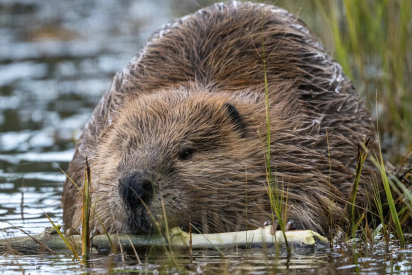
Anyone who lives in the Pacific Northwest for a period of time is bound to eventually become acquainted with beavers or see signs of their presence. These cute, fuzzy semi-aquatic rodents are abundant in Seattle and have called this area home since long before humans arrived. Now, beavers are making their homes alongside humans, but these neighbors do not come without controversy.
Read moreVirtual History: Gaming as a way to understand history and policy
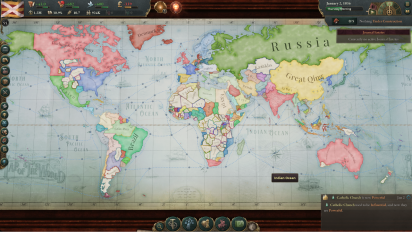
Imagine you could change history. You have been put in control over a country and have 100 years to guide its citizens into the future. What do you do? Do you pass laws that move your people into a more egalitarian society? Do you establish trade routes and make your nation an industrial powerhouse? Do you invade your neighbors or enact peace?
Read moreSolarpunk: A Vision for a Sustainable Future
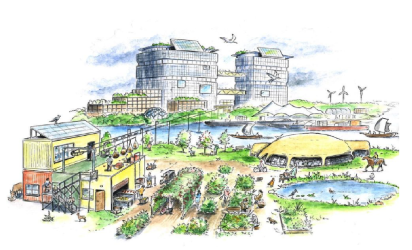
Conversations about climate change, which are becoming increasingly more common, bombard us with images of doom and gloom. Wildfires, flooding, drought, extinction, and suffering. These catastrophes are happening now and they will happen in the future. While it is important to be informed of the impacts of climate crises that our communities likely will face, this rhetoric does little to advance solutions or spur us to action.
Read moreThe CZMA: Enabling Coasts to do the Most
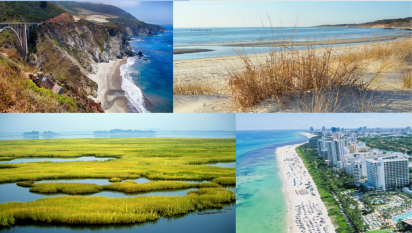
The School of Marine and Environment Affairs (SMEA) is dedicated to studying coastal zone issues and management as part of its interdisciplinary curriculum. Professor Marc Hershman founded the Coastal Management Journal, which is housed in SMEA, and is the namesake for the Hershman Fellowship. This fellowship has given students, many of which are SMEA alumni, an opportunity to work directly on coastal zone policy in Washington State.
Read moreRaving Mad Crab
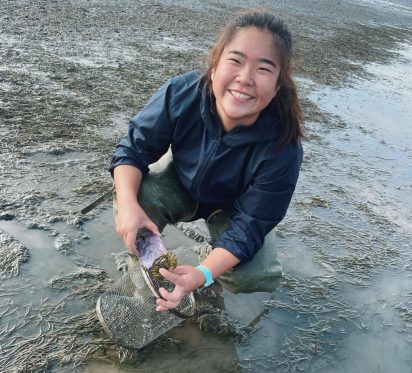
Carcinus maenas, the Latin name for the European green crab, translates to “raving mad crab.” This may as well be their nickname as these crabs are ecologically destructive and are considered one of the world’s 100 worst invaders by the International Union for the Conservation of Nature. European green crabs are native to Europe and North Africa, but they made their way to the United States in the mid-1800s, likely through ballast water.
Read moreKeeping up with the Cetaceans: The world’s real trendsetters
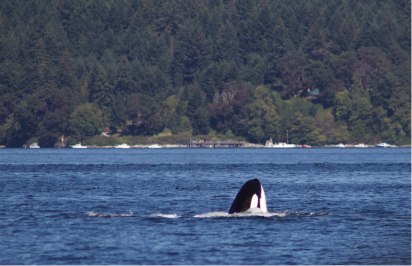
It’s been 16 years since we’ve been keeping up with the Kardashians and, let’s be honest, when it comes to modern terrestrial trendsetters, there is no one that holds a candle to them. Come to think of it, the frontiers of their athleisure dominion aren’t that far-flung. Of course, humans are the indisputable arbiters of trends, fashion, and what’s “in” on land.
Read moreClimate Fiction Starter Pack
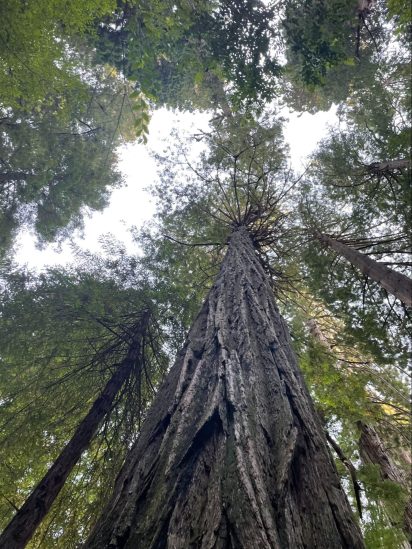
As an English major in college, I took a course titled Literature & the Environment. The course itself was a new offering because climate fiction has only been identified as a genre since the 2010s (though literary predecessors have existed throughout the 20th century). The power of climate fiction is its capacity to relay real experiences, invoke the imagination of both writer and reader, and sometimes even suggest practical solutions – The Ministry for the Future contributed enough substance for discussions at the United Nations and the Pentagon.
Read moreA Love Letter to Running and to Nell
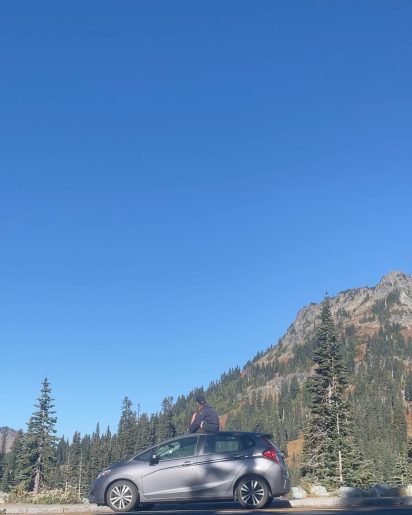
Two Decembers ago, I stood in the small kitchen of my best friend’s apartment, leaning against the sink and watching in the mirror as she cut my hair. As the pieces rained down around me onto the kitchen floor, Nell told me about her new job and the past four months of her life that we had spent on separate coasts both starting new journeys.
Read moreA Reflection on Fall’s Delayed Rain
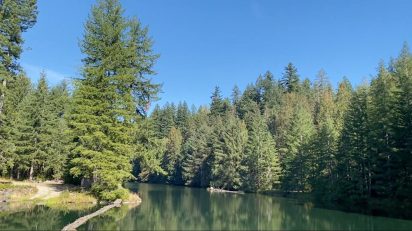
Come along on a salmon and naturalist’s journey through the Cedar River.
It’s been about three years since I was last home. I had an amazing time in the Salish Sea with my fellow Chinook salmon, but it is now time to return home to mate and give rise to the next generation. I recall the organic odor of my natal stream.
Finding Connection to Nature Through the Practice of Yoga

For years, the practice of yoga has been an important and transformative part of my life. Similarly, outdoor activities such as hiking, trail running, or really anything that gets me outside have become foundational aspects of my day-to-day life. Until about two years ago, my yoga practice and my love for being outdoors existed separately. Practicing yoga in outdoor spaces was, at the time, the only connection between these two passions.
Read moreThe Fate of Frenchman Bay Part II
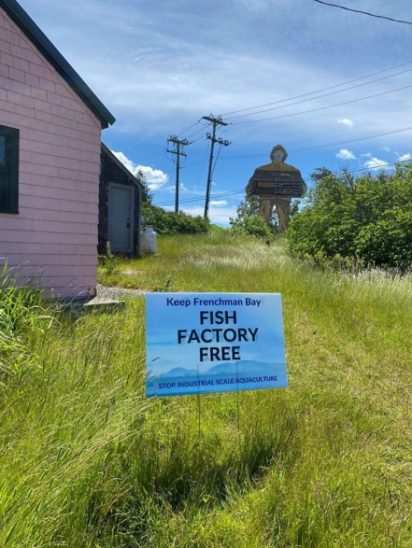
In February of this year I wrote an article for Currents titled The Fate of Frenchman Bay: a Contentious Battle Over Downeast Maine’s Marine Resources in which I outlined the fight to stop an industrial salmon farm from being built in Downeast Maine near Acadia National Park. Before reading ahead, I suggest reading that first.
The Update
Since I wrote The Fate of Frenchman Bay: a Contentious Battle Over Downeast Maine’s Marine Resources, some major developments have occurred.
Hope after a gruesome marine disease: spotting the critically endangered sunflower sea star in Washington

If you’ve ever visited a rocky tide flat at low tide, you’ve inevitably experienced the tumultuous traverse through boot-sucking mud that accompanies such excursions. I’ve found that, for me, the slog through the mud is always worth the effort to see diverse species in their natural habitats. I’ve never shied away from getting my hands dirty in the field, and this attitude has led me to some irreplaceable animal encounters, including one this summer where I got to see one of my favorite sea stars out in the wild – the critically endangered sunflower sea star (Pycnopodia helianthoides).
Read moreLost at Sea: Seafarers and Mental Health

CW: Mental Health; Attempted Suicide
The life of a seafarer can be a difficult one. Whether they fish, haul cargo, or haul passengers, it is often, by definition, a life away from friends and family. While life at sea can be immensely rewarding for some, there can be a high cost. Mental health in the maritime industry is a growing concern for mariners and their families, employers, fellow shipmates, and government organizations like the United States Coast Guard.
Engaged as a Volunteer, Enhanced as a Student

Conversations with friends and colleagues in academia reveal exposure to a similar message ingrained in our minds – “volunteer work will look great on your resume and for college applications.” While I can only speak for myself, it seems like many of us have heard this as early as during our high school years. As someone now working her way through a master’s program, I have continued to focus on volunteer opportunities alongside my career pursuits.
Read moreAn Overview of Shape Our Water: Seattle Public Utilities’ New Water Resilience Plan
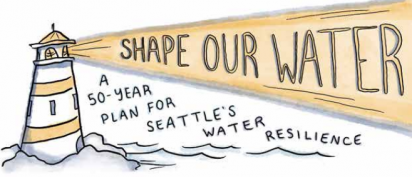
When I first moved to Seattle, my East Coast friends would always ask me the same question: “Does it really rain all the time?” and from my experience the answer is, “for eight months, kind of, yes!” So why does a city that is known for its constant rainfall, is surrounded by lakes, streams, and the entire Puget Sound need a 50 year water resilience plan?
Discovery Park Field Journal
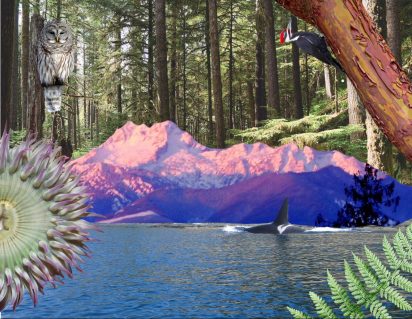
Every afternoon, I find myself entranced by the fern-covered forest floors, wide grasslands, and beaches dotted with anemones. All of these ecosystems exist in Seattle’s Discovery Park, just a few miles from my house. When I moved to Seattle, I definitely sought out parks to take my dog, Maple, as a way for her to decompress from the city life.
Why We Should Care About Horseshoe Crabs
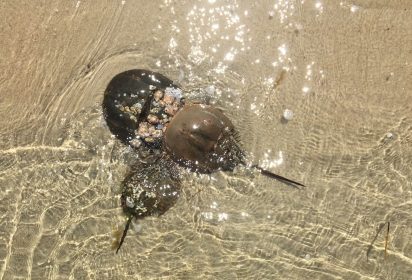
Behind my grandmother’s house in Massachusetts, a series of submerged cages float in the murky water of the brackish marsh. “He keeps horseshoe crabs out there,” she tells me of the man pulling up in a small skiff, “for their blood.” It can be sold for a serious profit to pharmaceutical companies seeing as for the past five decades or so, the ancient arthropods have played a pivotal role in the development of modern medicine.
Read moreGood News You May Have Missed This Summer
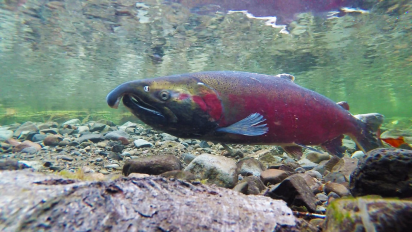
Environmental news headlines are often anything but positive. We consume endless articles unemotionally stating the losses associated with climate change. This exposure to negative and disheartening news can exacerbate feelings of eco-anxiety, dread, and climate doom. People who are feeling hopeless in the face of climate change may question if continued time, resources, and energy are worth the effort. Hopelessness leads to apathy but at this time, we need passion; a deep and consistent passion that leads to a commitment to protect the people and places we love.
Read moreWelcome to Currents: Meet the Executive Board!
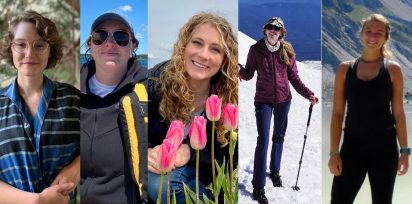
Hello and welcome to Currents 2022-2023! As the new executive board, we have spent the summer brainstorming and planning for another school year of excellent articles, and wanted to introduce ourselves before publishing begins. We are all second year SMEA students, excited to experience this year to the fullest. Take a look at our mission statement, courtesy of the hard work of previous executive boards.
Read more